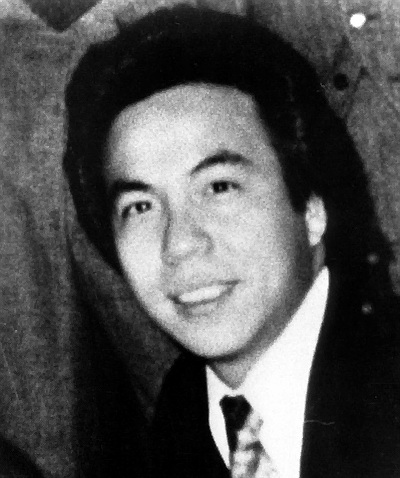Vincent Chin promised his mother that this was the last time he’d be going out to the club. Before he left home, she told him not to say “last time” as it was bad luck.
I suspect that anybody with a Chinese, Asian, South Asian parent or grandparent has heard some version of such words. It’s so relatable, so familiar.
I wonder if Vincent thought of his mother’s words on that night of June 19, 1982?
27-year-old Vincent Chin and his friends were out at a Detroit strip club, Fancy Pants, for his bachelor party. It was supposed to a fun, boozy night before Chin got married a few days later, his “last time” out.
Sadly, it would be a night of lasts for Vincent.
At one point two white men, Ronald Ebens and Michael Nitz, began giving Vincent some trouble. Witnesses claim that Ebens said to Chin, “It’s because of you little motherfuckers that we’re out of work.”
Like many people in Detroit, Ebens and Nitz believed that they had lost their auto industry jobs because of “the Japanese” and the import of Japanese-made cars. It didn’t matter that Chin was Chinese-American, the son of immigrants, to Ebens and his stepson Nitz he was Asian, therefore he might as well be Japanese, and they were angry.
Ebens and Nitz continued to harass Chin, with a fight eventually breaking out between the three men in the club.
Ebens, Nitz, and Chin were kicked out and parted ways, if only for a time. Paying a friend of theirs $20 to help them find Chin and his friend or “the Chinese guys” as they called them, Ebens and Nitz found Chin at a nearby McDonalds.
Outside the McDonalds, Nitz held Chin while Ebens beat him with a baseball bat. A policeman who witnessed the beating said Ebens was swinging the bat like he was swinging “for a home run”.
Chin was able to briefly break free from Nitz, but slipped in the street and fell down. There Ebens caught up to him, stood over him, and hit him with the baseball bat “full contact” in the head. When police offers approached Ebens and told him to “drop the bat” he hesitated before complying.
An Emergency Medical Technician on the scene said that while Chin was still alive when they got to him, “His skull was obviously fractured, there was brains laying on the street…Chin was obviously in a fatal condition.”
After lying in a coma for four days, Vincent Chin died on June 23, 1982 when life support was disconnected. Instead of attending his wedding, his guests attended his funeral.
Through a plea bargain, the charges against Ebens and Nitz were reduced from second-degree murder to manslaughter. Both men were sentenced to three years probation and a $3000 fine plus court fees.
When Chief Judge Charles Kaufman, was questioned by the American Citizens for Justice (ACJ), a Detroit-based Asian-American civil rights organization formed in reaction to the Chin case, regarding the leniency of the sentencing, he cited their good work record and backed up the belief that this was merely the case of a “bar brawl” gone wrong.
“These weren’t the kind of men you send to jail,” wrote Judge Kaufman to the ACJ regarding Ebens and Nitz.
Apparently Judge Kaufman was right.
Following public outcry from Japanese, Chinese, Koreans – all of the Asian-American community – over the mere slap on the wrist Chin’s murderer’s received from the state court, the Department of Justice was pressured into pursuing civil rights charges against Ebens and Nitz.
Only Ebens was found guilty in federal court, sentenced to 25 years in prison. Nitz was acquitted. However, Ebens appealed to the Sixth Circuit Court of Appeals and a Cincinnati jury overturned the sentence.
Though Ebens’ jail sentence was overturned, he was still ordered to pay the Chin estate $1.5 million – an amount he never paid. At the time of this writing, Ebens owes the Chin estate approximately $8 million due to interest and missed payment charges.
Ronald Ebens and Michael Nitz never served any jail time.
There’s no way around this one: 35 years ago, Vincent Chin was murdered because he was Asian.
It didn’t matter “what kind of Asian” he was, his murderers saw what they wanted to see. The entire incident seethes with hate. A person does not chase down and break open another person’s skull without intent.
Following Chin to a McDonalds with a baseball bat is not a barroom brawl gone awry.
Having your stepson hold Chin while you take swings at him with that bat is no mistake.
Chasing Chin down, standing over him, and literally beating his brains out is not an accident.
I wish that Vincent Chin’s case was “shocking”; that I was shocked that the justice system failed him. I wish that I was shocked that so few Americans, both Asian and non-Asian, have heard of Vincent Chin. But I’m not. I would be more shocked if the white men were brought to justice for the slaying of the Asian man. This is how the America I know has conditioned me.
Living in the days of police brutality toward black Americans, the Muslim ban, and Asian-American hate crimes on the rise, Vincent Chin’s case is a gut-wrenching reminder of how far we have not come.
This 35-year-old hate crime feels like it could have happened just yesterday.
With Trump demonizing Muslims, Mexicans, and China, the cultural climate that created Ebens and Nitz’s rage seems to be repeating itself – if on a grander scale. More than anti-Japanese sentiment in Detroit because of the struggling American auto industry, the climate we live in today sees foreigners as a threat to making America great. There’s a brand of vengeful patriotism emboldening certain citizens.
And looking at the cases of black Americans like Philando Castile, Jordan Edwards, and Michael Brown, being the wrong race at the wrong time is still a danger in America. Whereas Chin’s case was alarming to the Asian-American community, the black community in America has no choice but to live with such fear.
So in the face of such fear and hatred in America, how can remembering Vincent Chin help?
My hope is that with time comes perspective. Living in the muck that is American politics right now, it is admittedly difficult to be objective when faced with headline upon divisive headline.
But Chin’s case is so simple, so clear. Almost every account, from the interviews gathered in the documentary Who Killed Vincent Chin?, from so many witnesses, Chin’s was a case of a man needlessly brutalized because of his race. More than that, the incorrect assumption of his race and cultural background.
If people can see the wrong in Vincent Chin’s case, maybe, just maybe their eyes will be opened to the wrong in profiling a black, Mexican, or Muslim person.
Perhaps Vincent’s mother was right – every time we say that this crime will be the “last time” or that crime will be the “last time” we are jinxing ourselves. In another 35 years will we still be saying that “this will be the last time”? Or will we have finally learned to say no more and mean it?

